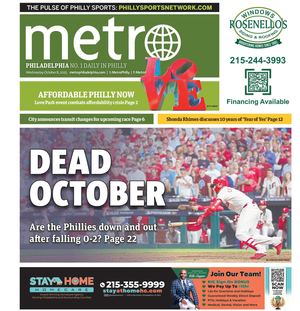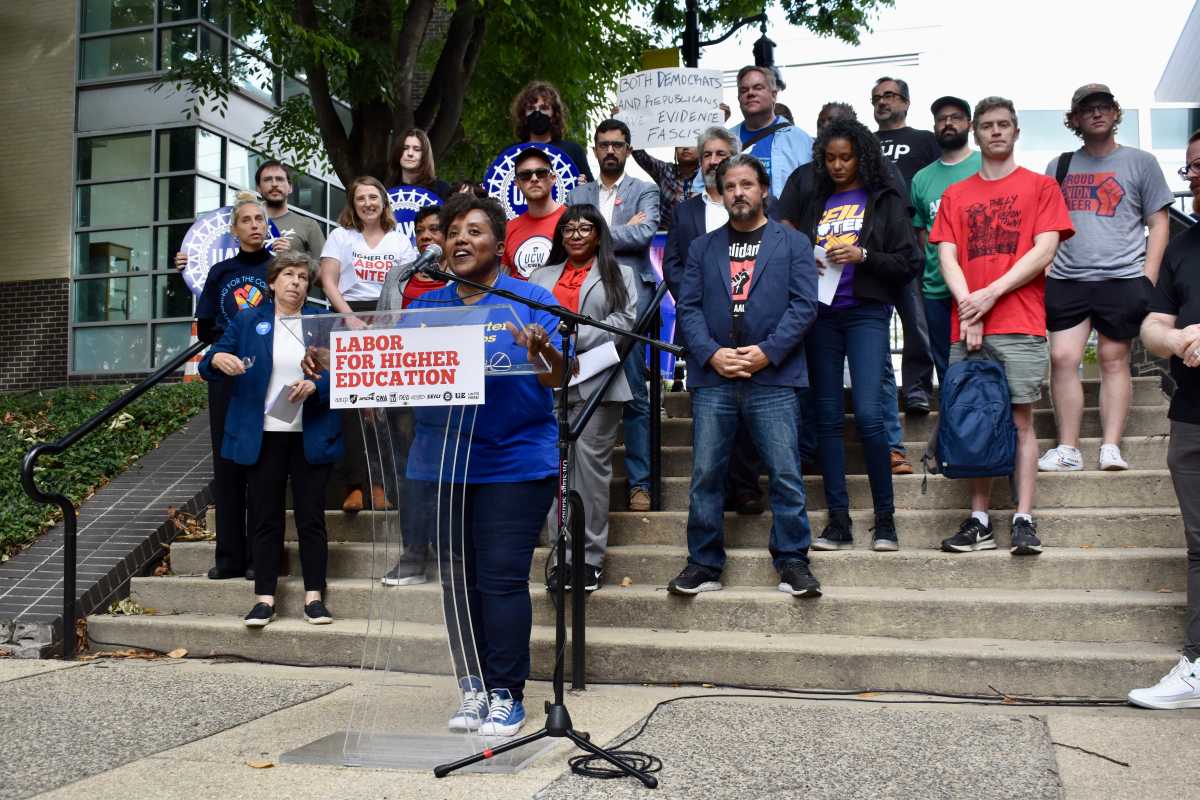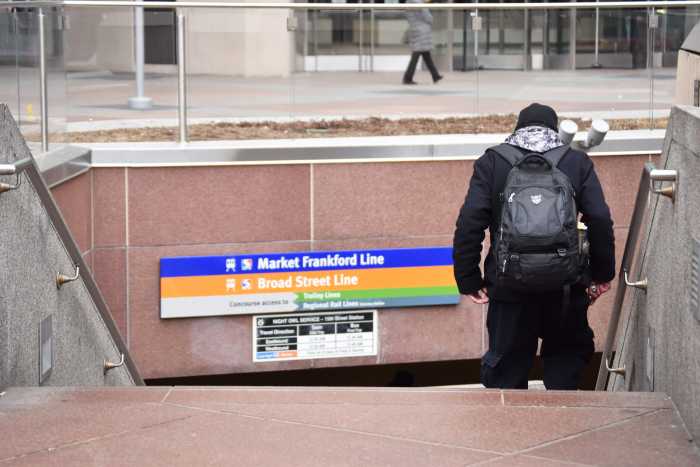National labor leaders from unions representing university faculty and staff gathered Monday at the Community College of Philadelphia’s campus to lay out their recommended higher education platform for the next president.
The groups are strongly backing the Democratic Party ticket – Vice President Kamala Harris and Minnesota Gov. Tim Walz – but the work of the newly formed coalition, called Labor for Higher Ed, “becomes even more important” if former President Donald Trump wins in November, said American Federation of Teachers President Randi Weingarten.
Decades of government underfunding has led to ballooning debt for students and schools; the increased use of lower-paid adjunct, instead of tenured, professors; and institutions losing sight of their core missions, said Todd Wolfson, president of the American Association of University Professors.
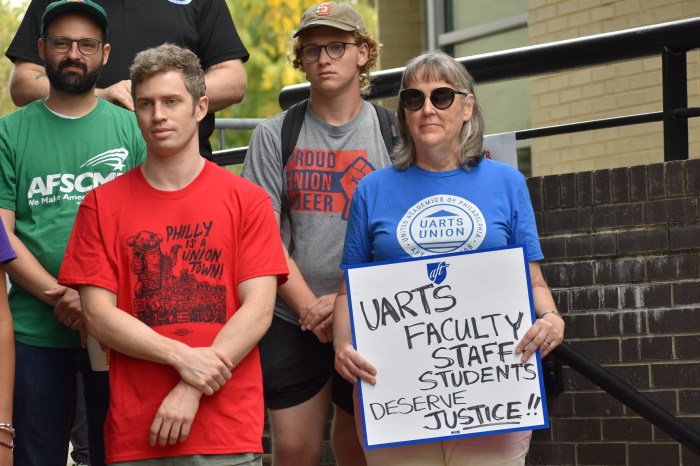
Representatives from the University of the Arts union participated in Monday’s launch, and Weingarten described the college’s sudden closure as “a perfect, horrible example of what has happened with the corporatization of higher education.”
In a statement addressed to Harris, Labor for Higher Ed calls on her to boost federal funding for colleges and universities; expand access to higher education; foster better working conditions for workers in the industry; and appoint an education secretary who believes college is “a truly public good.”
The coalition wants a Harris administration to strengthen support for minority-serving institutions, like historically Black colleges and universities, and open-enrollment schools, such as junior and community colleges.
Rainah Chambliss, co-president of the Faculty and Staff Federation of the Community College of Philadelphia, said members of her union have been working without a contract.
“We need to change the status quo that has defunded public institutions like CCP for over four decades,” Chambliss said.
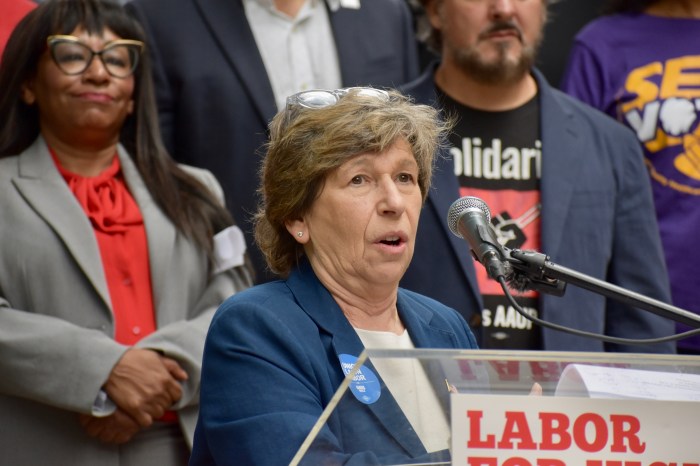
In addition, the platform says more needs to be done to address student debt, and union officials want Congress to pass a law bolstering the rights of employees at government-run colleges to negotiate collective bargaining agreements.
A Harris administration should also bolster academic freedom and protect freedom of speech on campuses, the statement asserts.
Adopting the recommendations is important – and not just for students and faculty, union leaders argued.
“We’re doing this together for our future and for the democracy and for the economy that the United States deserves,” Weingarten said. “That’s the promise of America, and it starts with this coalition.”
Wolfson, a Rutgers University professor, said Labor for Higher Ed will be touring swing states and hosting town hall-style meetings. Members will also be engaging students and staff at their universities.
“This is the first step in what I know is going to be an important alliance of higher ed workers and our unions offering real solutions to the problems that we face on our campuses,” he added.
Weingarten said AFT is aligning all of its organizing in higher education with the principles of the coalition.
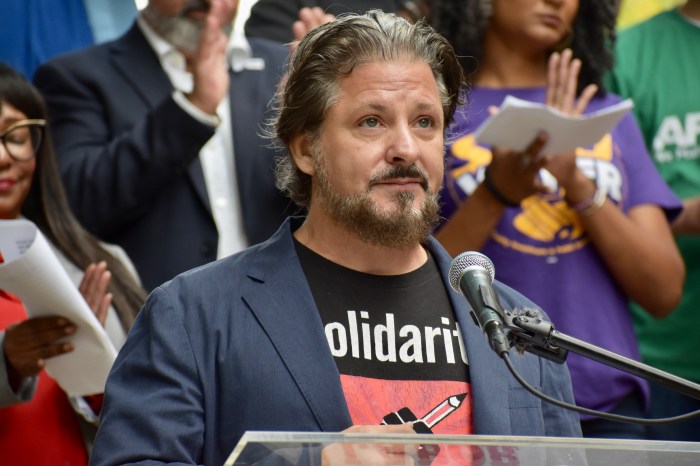
In addition to AAUP and AFT, the statement was endorsed by the American Federation of State, County and Municipal Employees, the Communications Workers of America, the United Auto Workers, the Office and Professional Employees International Union, Higher Education Labor United, the National Education Association, UNITE HERE and the Service Employees International Union.
